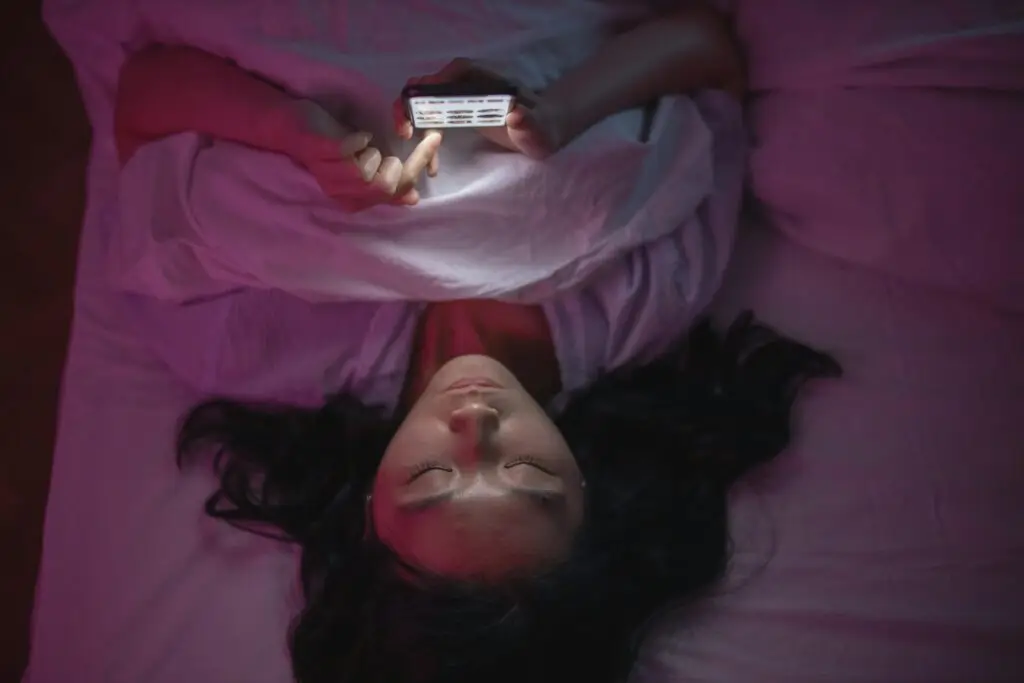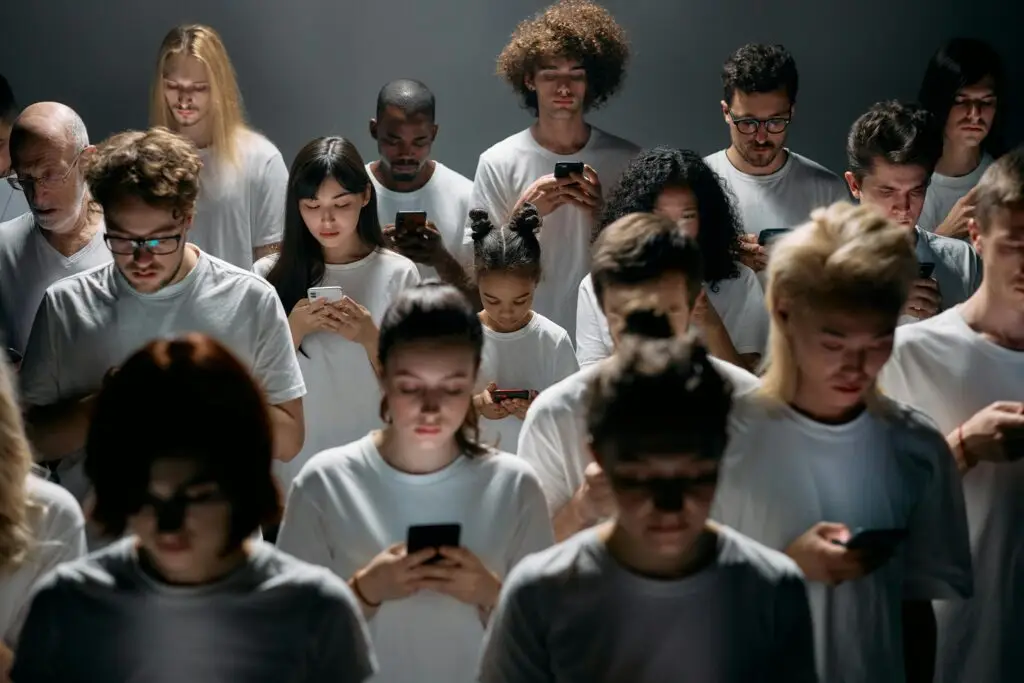🧠 Introduction
Just like everyone else, I was constantly on my phone. Doomscrolling. Watching random stuff. Checking things that didn’t matter.
One night, I randomly opened up my Screen Time stats—just to see what it looked like. I mean, I expected it to be bad… but not over 7 hours bad.
The worst part? I wasn’t doing anything important. I was just scrolling, tapping, watching. And that’s when it hit me—I wasn’t just wasting time. I was literally rewiring how my brain works. How I think. How I operate in my day-to-day life.
Why do we reach for our phones the second we’re bored or alone for two minutes? What’s that doing to us?
I decided to do something about it. And since then, I’ve gotten more done, felt more alive, and honestly — I just feel better. I’m not here as an expert, just someone who’s tested a bunch of stuff and wants to share what actually worked (and what didn’t).
✍️ It Was Never “Just Checking My Phone”
Every few minutes, I’d pick up my phone to “check something real quick.” No big deal, right?
Except it wasn’t harmless. It added up.
Most of those pickups were mindless. I wasn’t replying to anything urgent or learning anything useful. I was just… checking.
And if you’re anything like me, your most-used apps are probably the usual suspects — Instagram, TikTok, YouTube. The irony? We spend hours on “social” media without being social at all.
These micro-distractions become habits. Then routines. Then they shape how your brain works. Suddenly, it feels like you need to check your phone—even during a five-minute work break or a quiet moment in an elevator.
It creeps into everything. You check your phone in class. At the gym. While eating. Even while watching a movie.

Your phone becomes a reflex. And those reflexes cost you days, maybe weeks, of time that could’ve gone to things that actually matter. It’s no longer a tool. It’s a trigger.
🧠 My Brain Was Wired for Dopamine — Not Focus
So let’s talk about dopamine for a second. No science degree needed.
Dopamine is the “feel-good” chemical your brain releases when you do something enjoyable. It’s what gives you that hit of pleasure — and also what motivates you to keep doing it again.
Apps are literally designed to give you as much dopamine as possible, as fast as possible. That’s why you end up watching funny dog videos for 30 minutes instead of that educational podcast you said you’d get to.
More dopamine = more pleasure. More pleasure = more motivation to keep scrolling. It’s a loop — and it’s addictive.

Here’s what that did to me:
- Constant switching – I couldn’t sit still with one activity. If I got a little bored, I just had to do something else, which usually meant scrolling on Instagram.
- Low patience and attention span – If something didn’t hook me in 5 seconds, I was done. I’d scroll to the next video. Or close the book. Or skip the song.
- Simple things — like painting, walking, or running — felt boring unless I had music or my phone with me. Silence? Forget it. My brain didn’t know what to do with quiet anymore.
I couldn’t focus on studying. I couldn’t enjoy hobbies. I couldn’t stay present.
And the scary part? You might not even realize it’s happening.
I only noticed once I tried to read a book and couldn’t make it past page three without checking my phone. That’s when I knew something had to change.
“If you don’t train your attention, the internet will train it for you.”
🧪 Things I Tried (That Totally Failed)
If you’re thinking of cutting down your screen time, you might already have a few ideas in mind.
Let me guess:
- “I’ll just set app timers.”
- “I’ll delete all my social media.”
- “I’ll replace the apps with better ones.”
Yeah. Been there.
Let me tell you why these didn’t work for me:
⌛ App Timers
Setting a 30-minute limit sounds smart… until you see that little button pop up: “Ignore Limit.”
And guess what? When you’ve had a long day or you’re bored out of your mind, your willpower is low, you’re probably going to tap that button. I did. Every time.
Also, let’s be real — going from 7 hours to 30 minutes is way too steep. That’s like asking someone who smokes a pack a day to quit cold turkey. It’s not sustainable. You have to slowly build up to it.
🗑️ Deleting the Apps
Yup, I tried this too.
But here’s the problem: it’s so easy to re-download them. And when I didn’t, I just opened Instagram or YouTube in my browser. Even in incognito mode.
No custom feed? Doesn’t matter. My brain just wanted something to scroll.
🔁 Replacing with “Better” Apps
This one’s sneaky.
I told myself I’d delete TikTok and just use LinkedIn or Notion or a productivity app instead.
But that’s like cleaning your mess with another mess.
I was still wasting time, just in a slightly more “productive-looking” way.
Moral of the story: You can’t trick your brain out of an addiction. You need to rewire it.
🔧 What Actually Worked (And Why)
No complicated systems. No fancy hacks. Here’s what worked for me — and why it worked.
I realized the key wasn’t just cutting screen time. It was replacing it with something that actually gave me a reward, something meaningful. Something earned.
Think about it like this: A successful CEO doesn’t scroll all day because they’re getting dopamine from building things. That’s their reward.
They don’t need TikTok to feel good. Their work is the dopamine.
That’s what I needed. Something that felt better than scrolling.
For me, that looked like:
- 🏋️♂️ Going to the gym
- 💡 Working on my side project
- 🗣 Talking to real people — real conversations, not comment sections
These things took effort. But they gave me real rewards.
I felt proud. Accomplished. Energized.
That’s the difference.
Social media gives you dopamine for doing nothing. That’s dangerous. Because real life doesn’t work like that.
🧠 How I Made It Stick
It took me about 7–10 days to really start noticing a change.
Here’s what helped:
- Let yourself be bored.
It’s okay. In fact, it’s good. I started thinking more deeply — about life, choices, even future plans. Boredom led to self-awareness. - Write it down.
If your brain starts spiraling when you’re bored, don’t fight it. Just write. I kept a journal, even if it was messy. Getting those thoughts out helped clear my head. - Phone-free mornings and nights.
No phone for the first hour of my day and the last hour before bed. That changed everything.
Instead of waking up and doomscrolling, I actually lived in the moment. I made breakfast. I read. I talked to people. I got present.
⏳ The Results (Way Beyond Time Saved)
The moment I broke that cycle, everything else began to shift.
Here’s what changed for me:
- I started enjoying small moments again — like the way sunlight hit my desk or the walk to class.
- My attention span came back. I could sit through a 3-hour lecture without needing to check my phone.
- Conversations got deeper. More meaningful. I was present.
- I felt less anxious. My thoughts weren’t bouncing all over the place.
- I got more done in a week than I used to in a month.
It wasn’t just about saving time. It was about mental clarity.
I could think again. I could feel again. I felt like me again.

💬 What I’d Tell Others
If you feel glued to your phone, you’re not broken. You’re not lazy. You’re just overstimulated.
So was I.
Your brain is overwhelmed with junk dopamine. It’s not your fault, but it is your responsibility.
You don’t need to go cold turkey. You don’t need to delete every app.
Just start small.
- One hour of no-phone time per day
- One intentional activity to replace it
- One boundary you’ll stick to
These little shifts compound. And the results come fast. You’ll feel better within a week — maybe even less.
It’s not about deleting your phone. It’s about using it on your terms.
🧭 Final Thoughts
This is a journey, not a finish line.
You’ll mess up. I still do.
There are days when I pick up my phone out of boredom. Days when I scroll more than I should.
But now I notice it. And that’s the real win.
I know how it affects me. I know how to stop. And more importantly, I know what I want instead.
So if you’re trying to take your brain back, I’m with you.
Let’s build a life that feels better than a screen.
PS – If you’re trying to regain your focus too — feel free to send me a message. I’d love to hear what’s worked for you.

